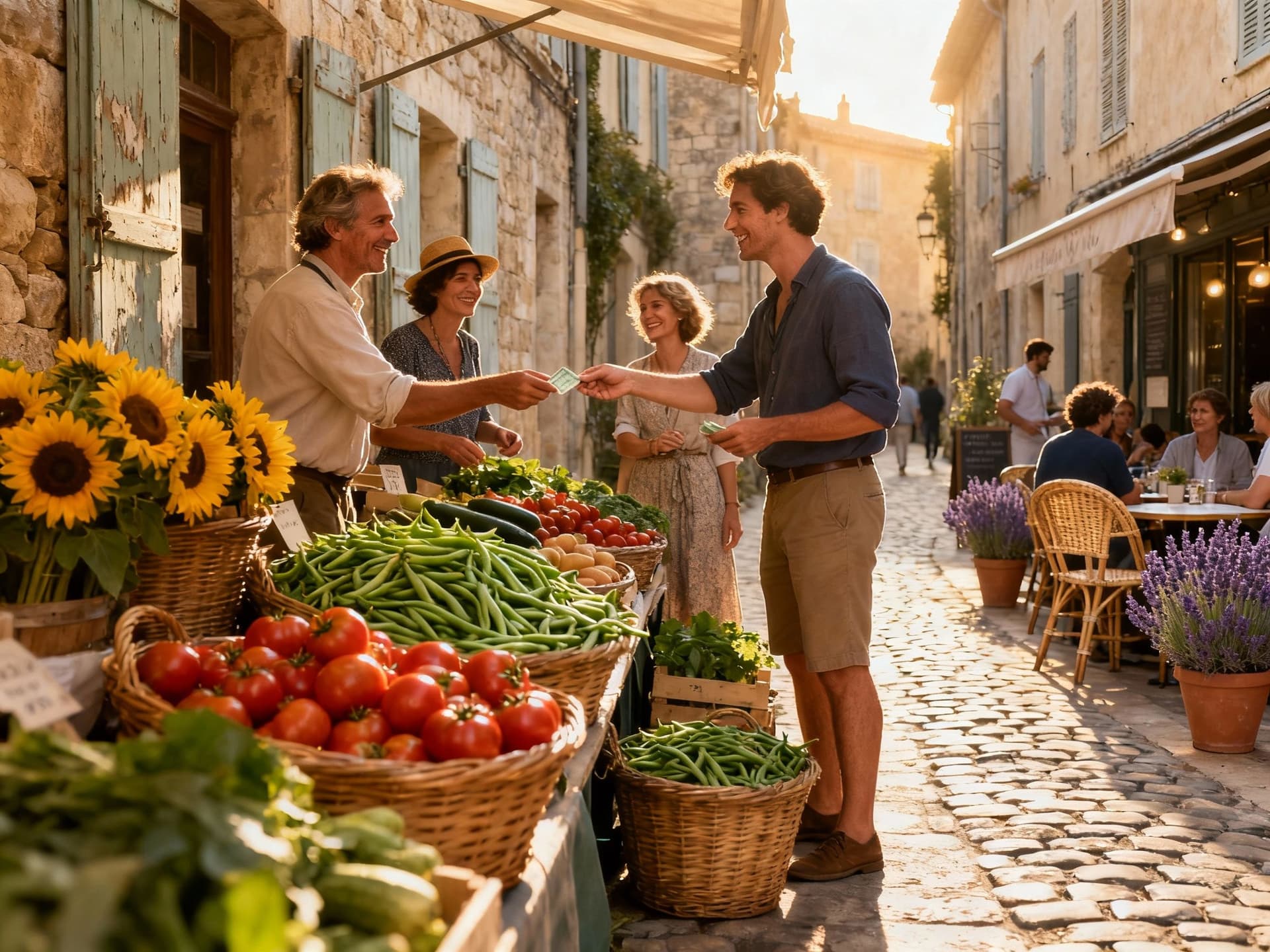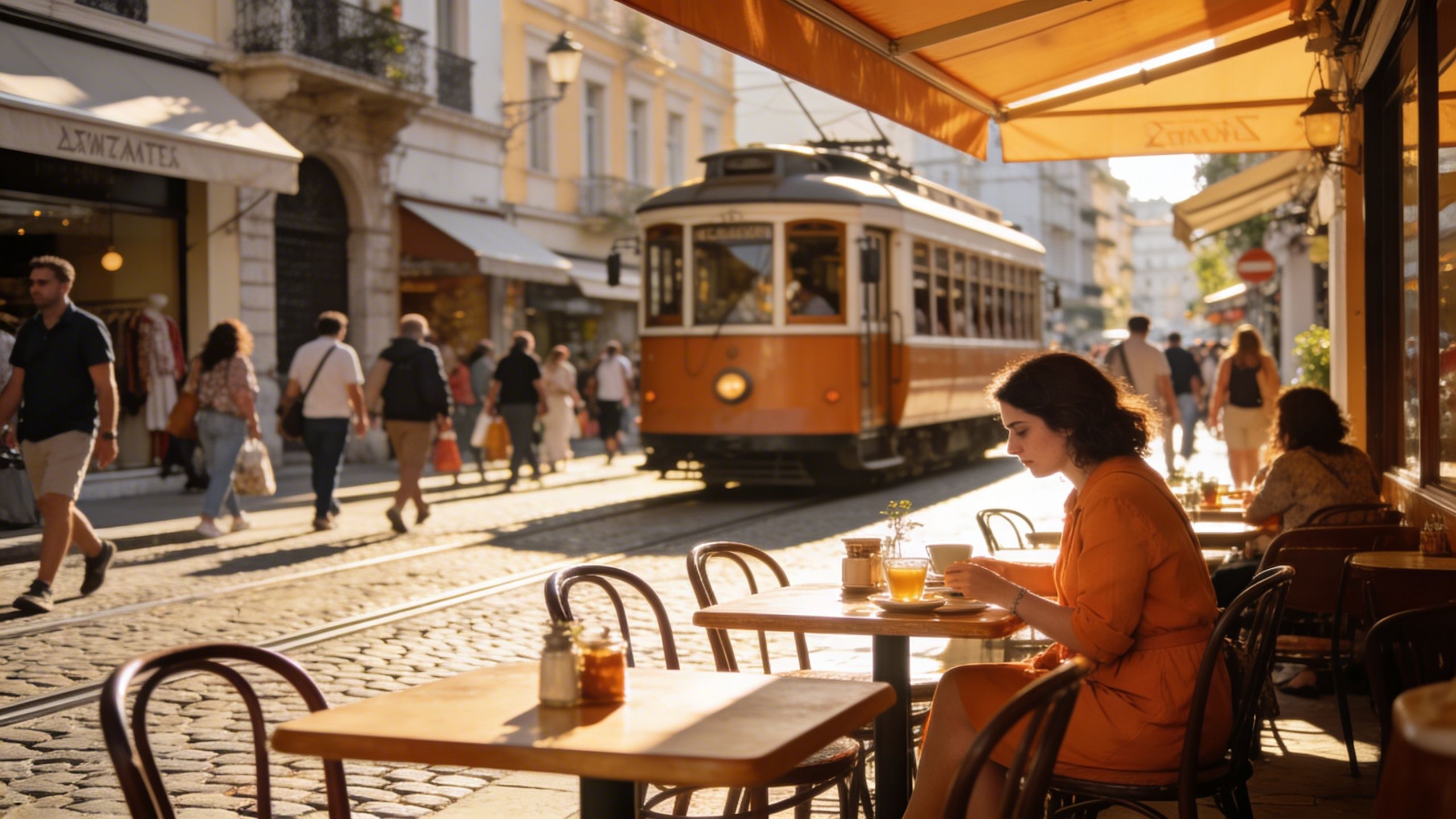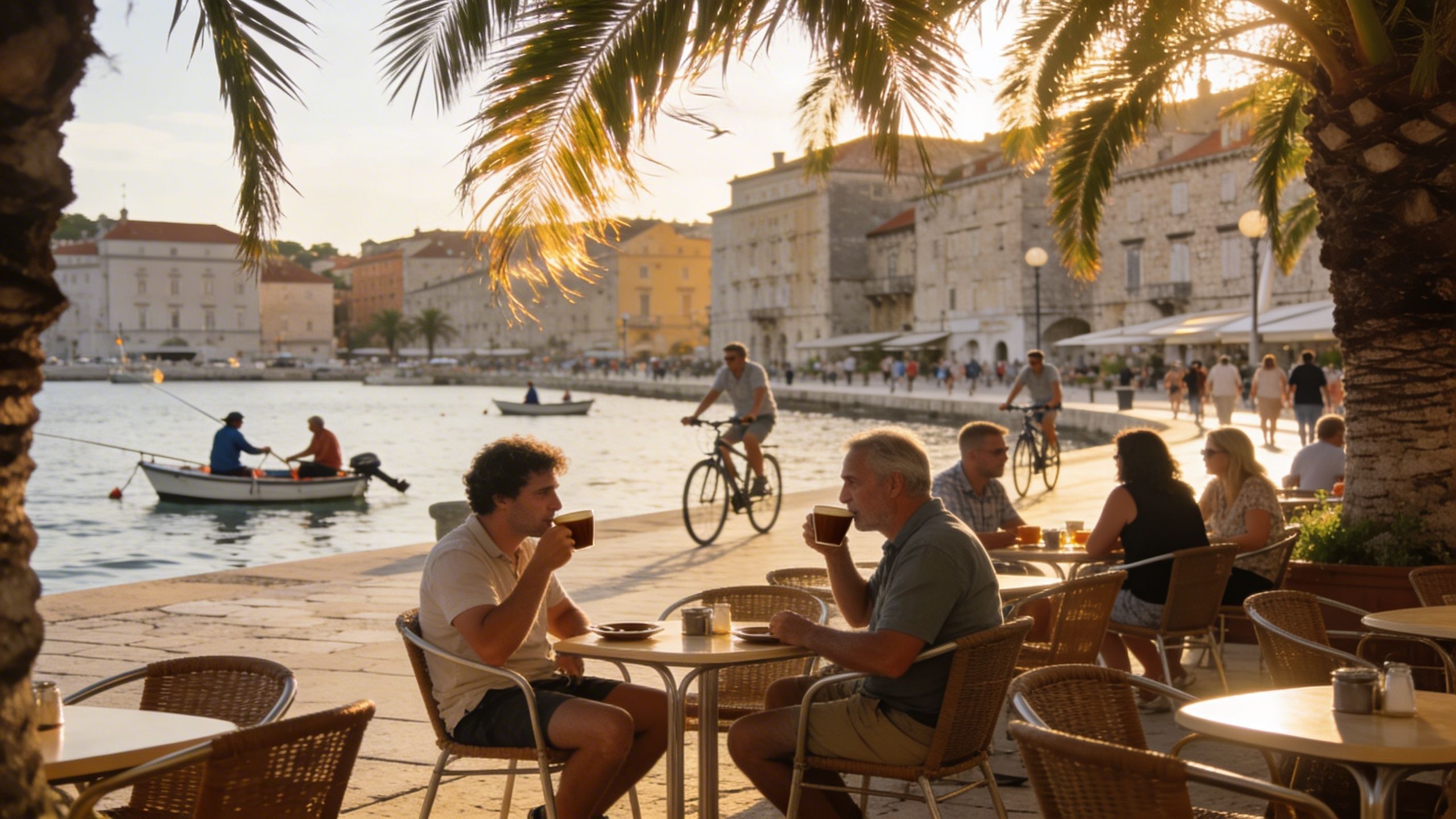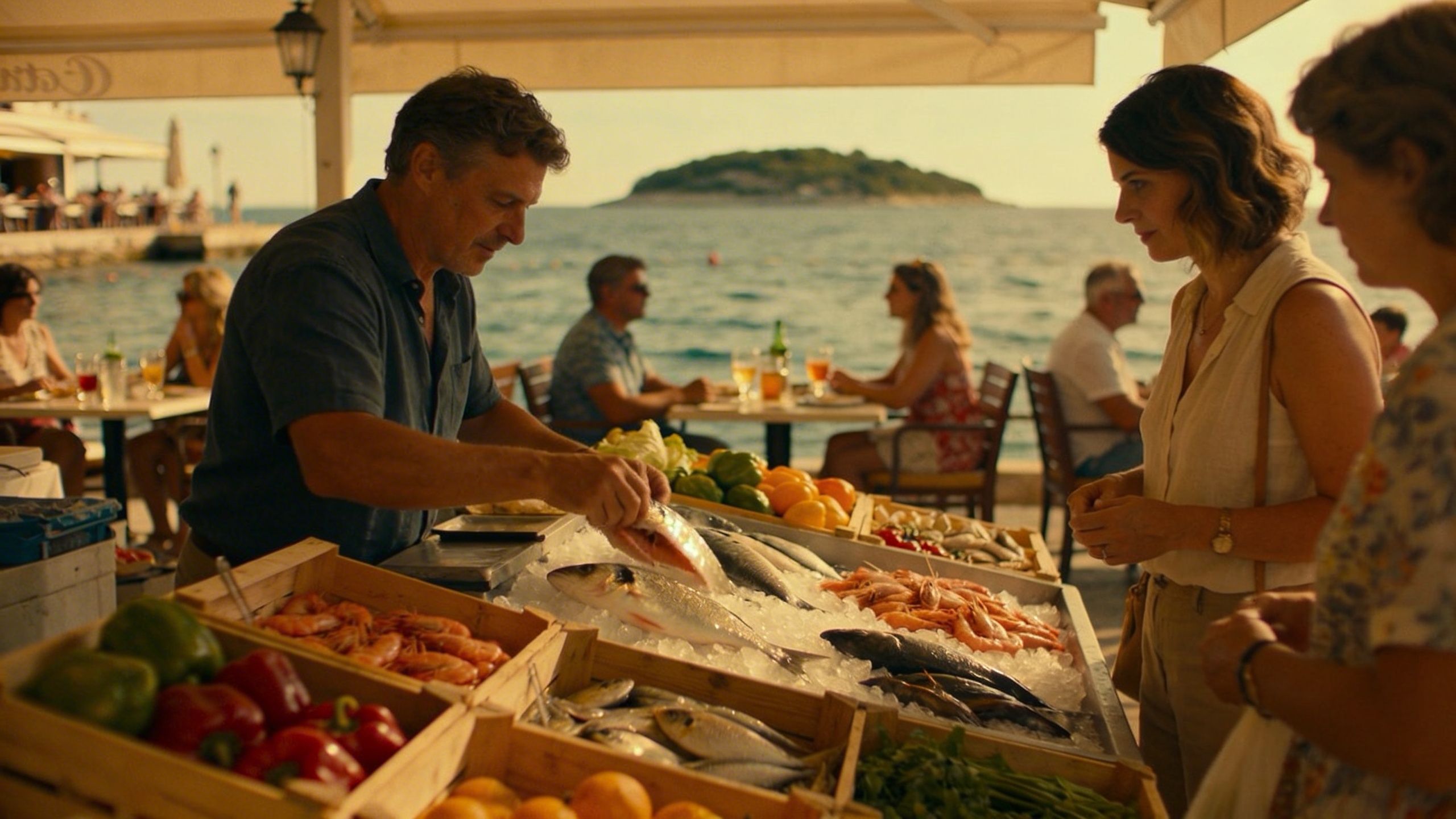Why France’s ‘High‑Tax’ Myth Helps Disciplined Buyers
France’s upfront costs and tight rules deter casual buyers—but those same features create durable advantages for disciplined investors who model taxes, co‑pro issues and neighbourhood demand.
Imagine mornings at Rue Cler with a flaky pain au chocolat, afternoons cycling along the Seine and evenings in a neighbourhood bistro where the landlord knows your name. France feels lived-in: layered history, precise mealtimes, lively markets and strong local institutions that shape how property behaves. But beneath the romance are rules, taxes and local quirks that change returns materially — and many international buyers misread them. This piece flips the usual fear-driven headline (“France is too expensive to own”) and shows how particular fiscal features, timing and neighbourhood selection can turn perceived disadvantages into a disciplined investment edge.
Living the France life — what you actually get

France’s daily rhythm matters for property returns. Markets, schools and cafés set predictable demand patterns: central arrondissements attract year-round short-stay and corporate lets, while provincial towns like Annecy, Aix‑en‑Provence and Bayonne create steadier long-term rentals tied to families and seasonal flows. For investors this means tenant profiles are not random: they follow the cultural clock — market days, school terms and tourism events — which makes forecasting occupancy and income more precise than in many holiday-first countries.
Paris vs. the provinces: two very different rhythms
Paris behaves like an international city — prices per m² are high, turnover frequent and regulation tight — while mid-sized cities and coastal towns trade lower entry prices with stable rental demand. According to notaries’ transaction data, Parisian price levels remain multiple times higher than the national average, creating obvious capital-protection benefits but compressing gross yields. The provinces, by contrast, show a range of micro-markets where a careful buyer can match lifestyle appeal (markets, lakes, vineyards) with rental predictability.
Weekends, food and the hidden demand drivers
Living in France is sensory: open-air markets on Saturdays, café terraces after work and festivals that return every summer. Those rhythms create predictable rental spikes (school holidays, market weekends, festival weeks) and predictable costs (local taxes such as taxe foncière can change annually). For investors the implication is simple: match lease length to local demand cycles and budget for tax volatility rather than assuming static costs.
Lifestyle highlights that affect property demand
Rue Cler market, Paris — reliable foot traffic and short-let demand
Le Panier, Marseille — creative scene attracting long-stay renters and artists
Vieux‑Nice & Promenade des Anglais — coastal rental premium in high season
Annecy Old Town — family-friendly demand and year-round tourism
Making the move: practical considerations that preserve lifestyle value

Here’s where myth meets numbers: purchase costs in France are front‑loaded and visible. For resale properties expect total acquisition costs (frais de notaire + taxes) around 7–10% of price; new-builds are materially cheaper at roughly 2–4%. Those acquisition frictions penalise frequent trading but reward buy-and-hold investors by aligning total cost of ownership with long-term yield generation. Factor these percentages into yield calculations rather than dismissing France because headline prices look high.
Property types and how they'll shape your life
A Haussmann apartment in Paris gives central access and strong resale liquidity but higher VAT-like costs and strict co‑propriété (condominium) rules. A renovated stone house in Dordogne offers space, lower purchase price per m² and seasonal rental potential but higher running costs (heating, maintenance). Match property archetype to your expected tenant: professionals and students prefer central apartments; families and retirees value houses near quality schools and healthcare.
Regulation matters: cities such as Paris and Nice require registration for short‑stay furnished rentals and can impose stiff fines for non‑compliance; Paris has actively enforced registration since 2017 and increased controls around major events. These local rules can remove short‑let upside or make it costlier; treat short‑let income assumptions conservatively unless you have local legal counsel and compliant processes.
Steps to align lifestyle intent with financial reality
Decide your primary use: personal second home, long‑term rental, or mixed (occasional personal use + rental).
Calculate total cost of acquisition (include 7–10% for resale) and model net yield after realistic taxes and maintenance.
Speak with a local notaire and an accountant to model income tax, social charges and potential double‑taxation treaties.
Insider knowledge: what expats wish they'd known
Too many buyers treat French taxes as fixed annoyances. In reality local taxes like taxe foncière vary by municipality and have risen sharply in places; some communes increased rates aggressively between 2022–2023. That volatility changes net yields and can turn an attractive gross yield into marginal returns. The smart play is to map tax history for the commune and stress‑test returns under plausible tax hikes.
Cultural friction: co‑ownership, syndic boards and renovation etiquette
Co‑propriété (condominium) rules are consequential in France. Syndic boards decide renovations and can levy special assessments; older buildings often have significant planned works (façade, insulation) that buyers inherit. Expect long meetings, detailed procès‑verbaux and the need for formal votes. For buyers this translates into hidden near‑term cash calls and project delays — factor a contingency equal to at least 1–2% of purchase price into your plan.
Language and local advisors: why English isn't enough
French property documents are detailed legal instruments; notaires, syndics and accountants will often operate in French. Even fluent English speakers benefit from bilingual legal review because subtleties in lease clauses, tax codes and local planning rules matter. Use a francophone accountant experienced with non‑resident taxation and ask for translations of key documents — it reduces costly misunderstandings.
Quick red flags to avoid
Large, unexplained syndic reserve shortfalls or pending works in meeting minutes.
Municipalities with repeated double‑digit taxe foncière hikes in recent years.
Short‑let income models that ignore registration requirements or local caps.
Conclusion — why the myth of “expensive France” can be an advantage
High upfront costs, detailed local rules and visible taxes create a barrier that screens out speculative, short‑term investors. For disciplined buyers this is positive: lower competition on certain segments, more predictable tenant profiles and a legal system that supports long‑term ownership. Treat France not as a uniform ‘expensive’ market but as a portfolio of micro-markets where careful selection, local advisory and conservative yield modelling can convert cultural and fiscal features into durable investment advantages.
British expat who moved to the Algarve in 2014. Specializes in portfolio-focused analysis, yields, and tax planning for UK buyers investing abroad.


